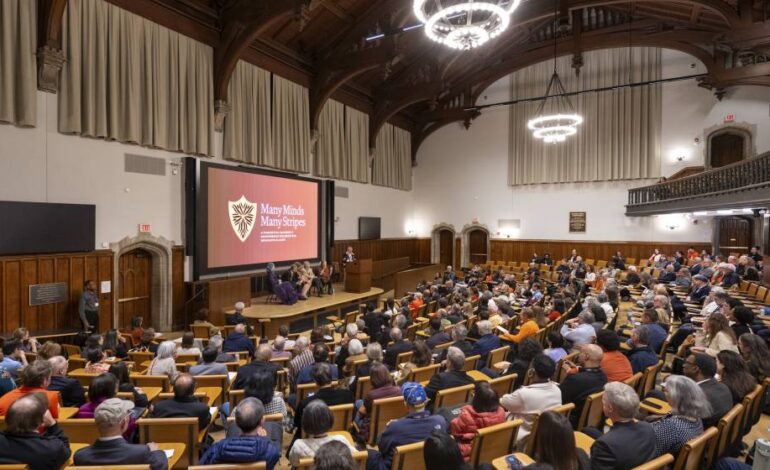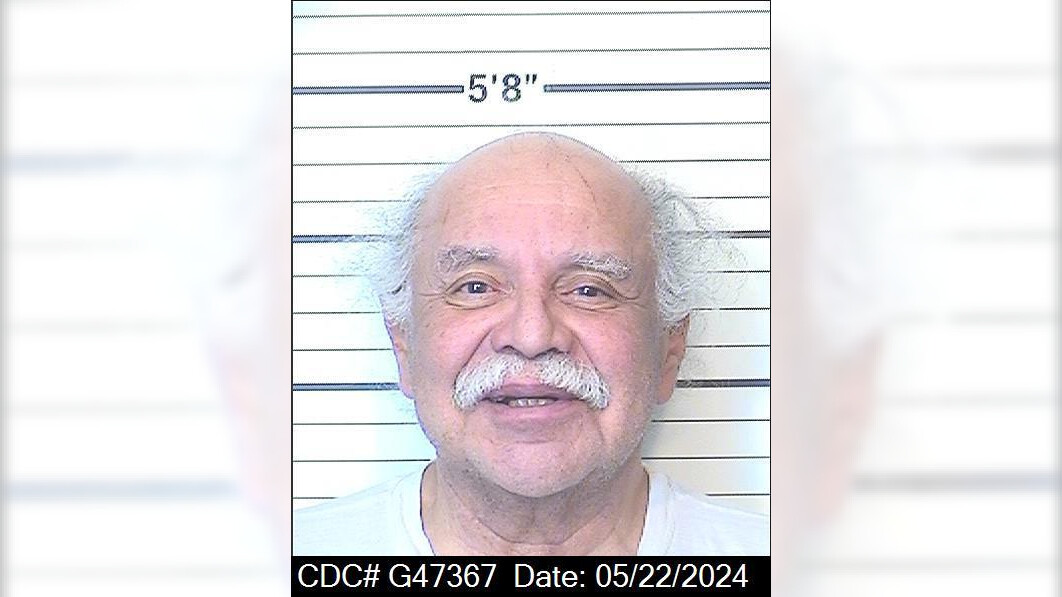Princeton Alumni Gather for the ‘Many Minds, Many Stripes’ Conference

More than 900 alumni and guests from Princeton University converged on the campus from October 9 to 11, 2023, for the “Many Minds, Many Stripes” conference. This event marked the first focus on graduate alumni since 2013 and served as a celebration of the University’s vibrant community. The three-day gathering featured a variety of activities, including panel discussions, faculty lectures, networking events, and tours, all while launching the 125th anniversary celebrations of the Princeton Graduate School.
The conference commenced on Thursday evening at McCosh 50, where Laurence Morse *80, co-chair of the conference, welcomed alumni from 39 states and 23 countries. In his opening remarks, he emphasized the importance of building relationships within the University community. “We hope that this conference will encourage you to reach out to each other, find commonalities, celebrate differences, and build relationships with one another and with our University that will last well beyond this gathering,” he stated.
The event featured a notable plenary session that included a conversation between Christopher L. Eisgruber ’83, President of Princeton University, and Ann Kirschner *78, president of Comma Communications and co-chair of the conference. Both leaders addressed the current landscape of higher education, highlighting the challenges and opportunities that lie ahead. Eisgruber asserted that Princeton’s Graduate School is thriving, despite the prevailing uncertainties in academia.
On Friday morning, a gathering in Richardson Auditorium saw alumni donning bright orange scarves and “GRAD” sweaters. Rodney Priestley, dean of the Princeton Graduate School, spoke about the transformative impact of the institution, noting advancements in financial support, health and wellness, and professional development. He remarked, “We invest in our students and their education and scholarship,” prompting applause from the audience.
The conference also featured personal narratives from five alumni during the “Princeton Stories: Journeys of Purpose and Possibility” segment. These stories encapsulated the diverse experiences of Princeton graduates. For instance, Veronica Pejril *88 shared her journey from pursuing a Ph.D. in music composition to becoming Indiana’s first openly transgender elected official. Her story resonated with many, underscoring the significance of identity and personal growth.
Other alumni, including Joel Johnson *67 and Noemi de la Puente *86, recounted their unique paths, reflecting on the value of multidisciplinary studies and the importance of self-reflection in career development.
“I now must write as short as I can about as much as I know,”
Johnson quipped, eliciting laughter from the audience.
Throughout the event, discussions spanned various topics, including the intricacies of academic research and entrepreneurship. A panel titled “Whose Art Is It?: Controversies and Complexities of Art Acquisitions and Repatriation” examined the ethical implications of art ownership and the challenges of repatriating cultural artifacts.
The School of Public and International Affairs (SPIA) hosted several panels during the conference, emphasizing the role of constructive dialogue in public leadership. Amaney Jamal, dean of SPIA, led discussions on the importance of understanding differing perspectives, particularly in today’s polarized environment.
During a session that focused on the translation of academic research into business, Justin Silpe *20 shared how he co-founded PumpKin, a company that innovates solutions for parents who pump breastmilk. His journey highlights the changing landscape of entrepreneurship at Princeton, where initiatives like the Keller Center for entrepreneurship provide essential support to aspiring business leaders.
The closing dinner included a presentation highlighting the history of graduate education at Princeton and celebrated the significant contributions of graduate alumni, who represent nearly one-third of all Princeton graduates. Priestley concluded the event by urging attendees to share the stories and insights from the conference, emphasizing the vital role of academic excellence and free speech in higher education.
As alumni reflected on their experiences during the conference, many expressed a renewed commitment to engaging with the Princeton community. Nicola Walter *92 remarked on the stimulating discussions and the opportunity to connect with peers from diverse backgrounds. The success of the “Many Minds, Many Stripes” conference reaffirms the enduring bond among Princeton alumni and the University’s commitment to fostering a thriving academic environment.






